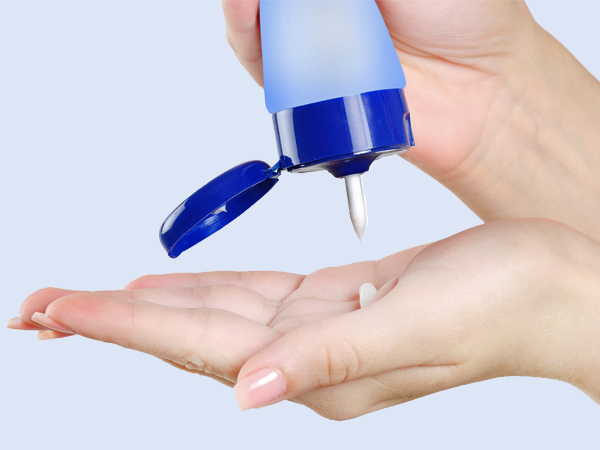Backed by increasing government pressure, activists are pushing to ban facial products containing an ingredient that’s been linked to the death of marine life. Nadia Stennett reports.

Few things are further from a beauty therapist’s mind when performing a facial than concerns over harming the environment. But as many as three out of four face scrubs and peels contain something called ‘microplastics’ – tiny beads often referred to as ‘microbeads’ which are typically added to skincare products to aid in exfoliation – that, when washed down the drain of your salon’s sink, make their way to the ocean where they’re swallowed by fish and marine creatures with disastrous consequences.
Typically made from polyethylene, these beads can cause serious harm to the digestive system when ingested, spreading toxic chemicals through the body, and because of their microscopic size (they’re often not even visible to the naked eye), microbeads are able to bypass sewage filtration systems and proliferate marine environments with ease.
It’s for that reason parts of the U.S have already started to ban the ingredient from beauty products, with Illinois leading the charge in a two-part ban which goes into effect in 2018 and 2019. The Netherlands has also announced it plans to be the first country to be virtually free of microbeads in cosmetics by the end of 2016.
The inclusion of microbeads in facial products in Australia is relatively recent – most patents date only to the middle of the last decade – but companies using them have already faced a huge consumer backlash in recent years as word has spread about their environmental effects, with savvy brands introducing natural exfoliating agents like sea salt, sugar and oatmeal in place of beads to win back eco-conscious clients.
“We certainly don’t use microbeads in our products,” says Green Living Cosmetics director and distributor of Eminence Organic Skin Care, Tamara Hart, who is an outspoken supporter of the natural cosmetics movement.
“There’s too many other great natural, non-harmful alternative ingredients out there to use something that’s so potentially damaging. For us, it just doesn’t make sense.”
While the potentially fatal effects of microbeads ingested by marine life are well known, to date little research has been conducted into what effects, if any, this ingredient could have on the health of humans. However many experts are already postulating the simple act of eating fish that have consumed microbeads could be putting us at risk.
In Australia, seven major cosmetics manufacturers have already committed to phase out the use of microbeads over the next three to five years, including L’Oreal, The Body Shop, Unilever, Clarins and Ella Baché. South Australia and NSW governments have also agreed to lead work on a ‘jurisdictional phase down’ of the ingredient, with environmental campaigner Jon Dee and NSW environment minister Rob Stokes leading a nationwide campaign calling for a voluntary ban of microbeads by the end of 2016.
Other states and companies are now expressing interest in collaborating with NSW on nullifying mircoplastics, a move welcomed by the environment minister, who told press earlier this year, “The NSW government announced our commitment to reducing these impacts last year, but for action to be truly effective it needs to occur at a national level.”
Have your say: Does your salon use facial products containing microplastics, and do you have concerns around their environmental and health effects?

